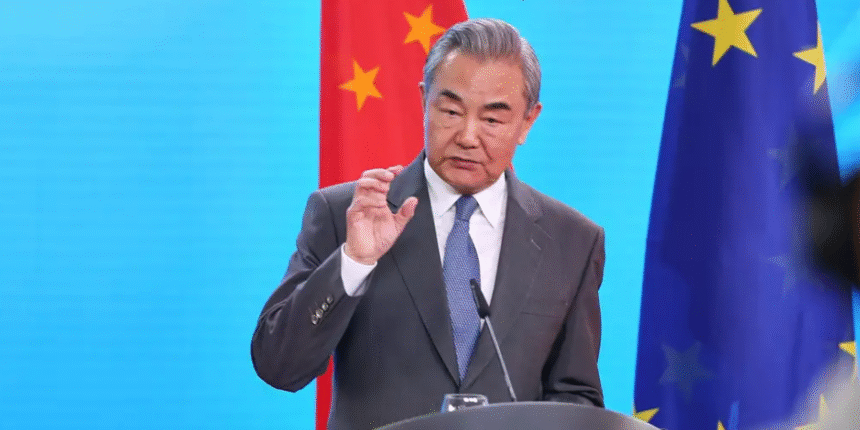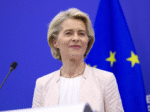Significant trade tensions are on full display as the EU-China summit in Beijing approaches, with expectations for a breakthrough remaining slim. The planned two-day talks were abruptly cut to a single day by China, signaling Beijing’s limited willingness to engage. This summit, originally slated for Brussels, was relocated to Beijing after Chinese President Xi Jinping declined an invitation to attend in Europe. European Commission President Ursula von der Leyen and European Council President Antonio Costa are now set to meet either Xi or Premier Li Qiang in the Chinese capital.
“This is another sign of Beijing’s limited willingness and ambition to engage with the Europeans,” noted Alicja Bachulska, policy fellow of the Asia program at the European Council on Foreign Relations (ECFR), in an interview with DW. Bachulska suggested that China’s elites often perceive the EU as a mid-level power with limited leverage in trade negotiations.
EU’s Persistent Grievances: Deficit, Subsidies, and Market Access
The core of the dispute revolves around the European Union’s €400 billion ($467 billion) trade deficit with China. This imbalance is largely attributed to restricted access to the Chinese market for EU producers, coupled with China’s industrial policies that heavily favor domestic suppliers through substantial subsidies, access to government contracts, and preferential regulations.
EU officials contend that these policies have resulted in significant overproduction, leading to the “dumping” of inexpensive Chinese electric vehicles (EVs) onto the EU market, thereby harming the domestic auto sector. Bachulska warned that without “serious action” to protect Europe’s auto industry, the EU risks “partial deindustrialization” within a few years.
In response, the European Union has imposed tariffs of up to 45% on Chinese EVs and is demanding an end to overcapacity and reciprocal market access to ensure a level playing field. China, conversely, seeks to replace these EV tariffs with minimum price commitments and other concessions.
In April, the EU established an Import Surveillance Task Force to protect its internal market, a measure that could trigger further anti-dumping duties or safeguards. The task force has already observed an 8.2% increase in China’s exports to the EU in April compared to last year, attributing it to Chinese exporters diverting goods from the US to avoid higher Trump tariffs. China, meanwhile, denies providing unfair advantages to its manufacturers, citing national security and economic development needs, and accuses the EU of protectionism.
Rare Earth Curbs and China’s Growing Technological Dominance
Another major point of contention is China’s chokehold on rare earth minerals, vital for clean technology, chipmaking, and medical equipment. The European Commission indicates that the EU relies on China for 98% of its rare earth supply and rare earth magnets. China’s introduction of rare earth export curbs last year has caused supply chain delays and production stoppages for EU firms, with the value of rare earth shipments to the EU falling by 84% in the first five months of 2025.
At June’s G7 summit, von der Leyen accused China of “coercion” and “blackmail” over these curbs. China’s Foreign Ministry rejected the criticism, suggesting the EU’s “mindset” needed to be “rebalanced.” Although European Trade Commissioner Maros Sefcovic negotiated an easing of export controls for rare earths in June, many firms report that approval processes remain too slow.
There are growing calls for European policymakers to adopt a harder line on Beijing, including through tariffs, procurement bans, or other measures, leveraging the EU’s Anti-Coercion Instrument. Bachulska emphasized the need for “political will” to utilize these tools.
Some observers view President Donald Trump’s tariffs on China as an opportunity for the EU to reset its relationship with the world’s second-largest economy, arguing that China needs Europe more than ever. However, Bachulska dismissed this as “naive,” stating that “China has won the first round of the trade war with the US, and there is a strong feeling in Beijing that time is on their side.”
China is actively shifting its economy towards “high-quality development,” prioritizing new technologies, domestic demand, security, and the environment. It is already challenging Western technological dominance, even surpassing the West in areas like 6G communications. Analysts suggest that the EU may be underestimating the economic threat from China and has failed to adopt a sufficiently firm approach.
“There’s a tendency to sideline China-related issues in Europe because we just have so many things on our plates,” Bachulska concluded, citing the Ukraine war and the EU’s trade dispute with Trump. She warned that the impacts of Chinese policies are likely to be felt in Europe “very soon.”







